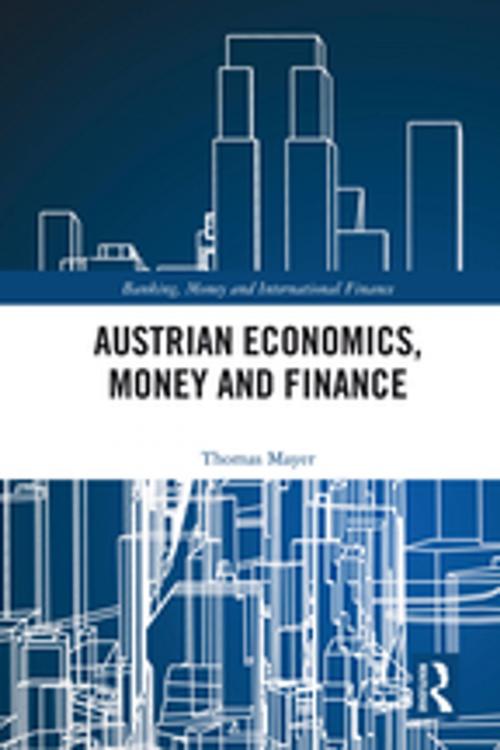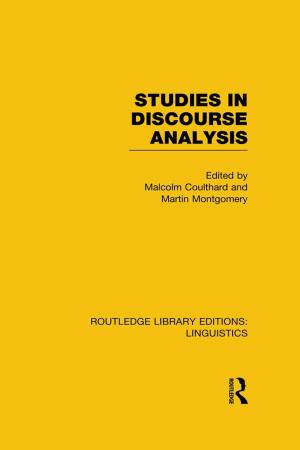Austrian Economics, Money and Finance
Business & Finance, Finance & Investing, Banks & Banking, Economics, Economic History, Finance| Author: | Thomas Mayer | ISBN: | 9781351685528 |
| Publisher: | Taylor and Francis | Publication: | November 10, 2017 |
| Imprint: | Routledge | Language: | English |
| Author: | Thomas Mayer |
| ISBN: | 9781351685528 |
| Publisher: | Taylor and Francis |
| Publication: | November 10, 2017 |
| Imprint: | Routledge |
| Language: | English |
The financial crisis has exposed severe shortcomings in mainstream monetary economics and modern finance. It is surprising that these shortcomings have not led to a wider debate about the need to overhaul these theories. Instead, mainstream economists have closed ranks to defend existing theories and public authorities have expanded their interference in markets.
This book investigates the problems associated with mainstream monetary economics and finance, and proposes alternatives based on the Austrian school of economics. This school emanated from the work of the nineteenth-century Austrian economist Carl Menger and was developed further by Eugen von Böhm-Bawerk, Ludwig von Mises, and Friedrich August von Hayek. In monetary economics, the Austrian school regards the creation of money by banks through credit extension as a key source of economic instability. From this follows the need for a comprehensive reform of our present monetary system. In a new monetary order, money could be issued by both public and private institutions, and there would be no need for fractional reserve banking. Instead of creating money, banks would intermediate it.
In finance, the Austrian school rejects the notion of rational expectations and measurable risk. Individuals use their subjective knowledge to gather and evaluate information, and they act in a world of radical uncertainty. Hence, markets are not "efficient" nor can portfolios be built on the basis of known probability distributions of asset prices as described in the modern finance literature.
This book explores the need for a new theoretical foundation for asset pricing and investment management that will give practitioners more useful orientation.
The financial crisis has exposed severe shortcomings in mainstream monetary economics and modern finance. It is surprising that these shortcomings have not led to a wider debate about the need to overhaul these theories. Instead, mainstream economists have closed ranks to defend existing theories and public authorities have expanded their interference in markets.
This book investigates the problems associated with mainstream monetary economics and finance, and proposes alternatives based on the Austrian school of economics. This school emanated from the work of the nineteenth-century Austrian economist Carl Menger and was developed further by Eugen von Böhm-Bawerk, Ludwig von Mises, and Friedrich August von Hayek. In monetary economics, the Austrian school regards the creation of money by banks through credit extension as a key source of economic instability. From this follows the need for a comprehensive reform of our present monetary system. In a new monetary order, money could be issued by both public and private institutions, and there would be no need for fractional reserve banking. Instead of creating money, banks would intermediate it.
In finance, the Austrian school rejects the notion of rational expectations and measurable risk. Individuals use their subjective knowledge to gather and evaluate information, and they act in a world of radical uncertainty. Hence, markets are not "efficient" nor can portfolios be built on the basis of known probability distributions of asset prices as described in the modern finance literature.
This book explores the need for a new theoretical foundation for asset pricing and investment management that will give practitioners more useful orientation.















